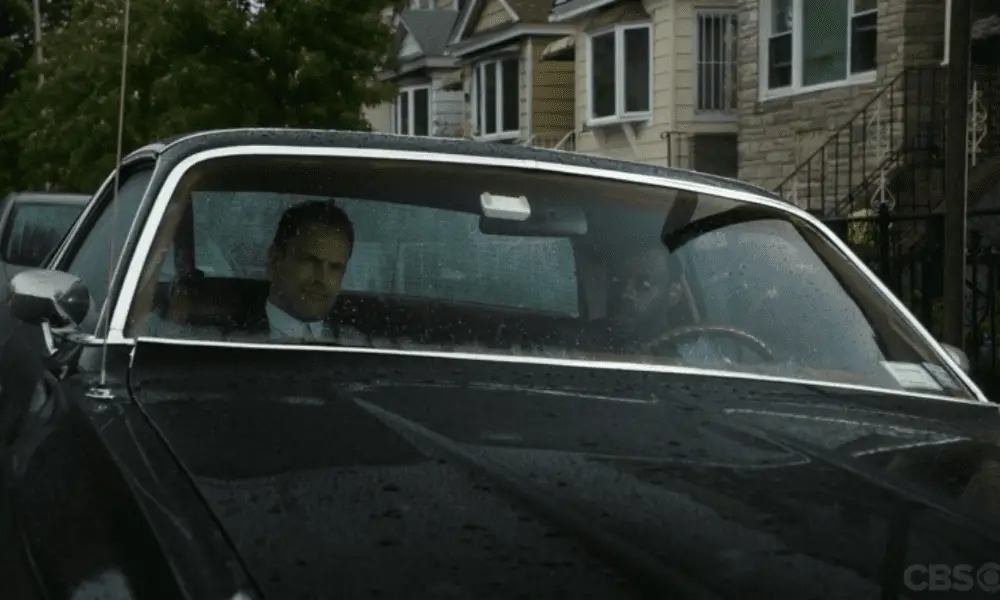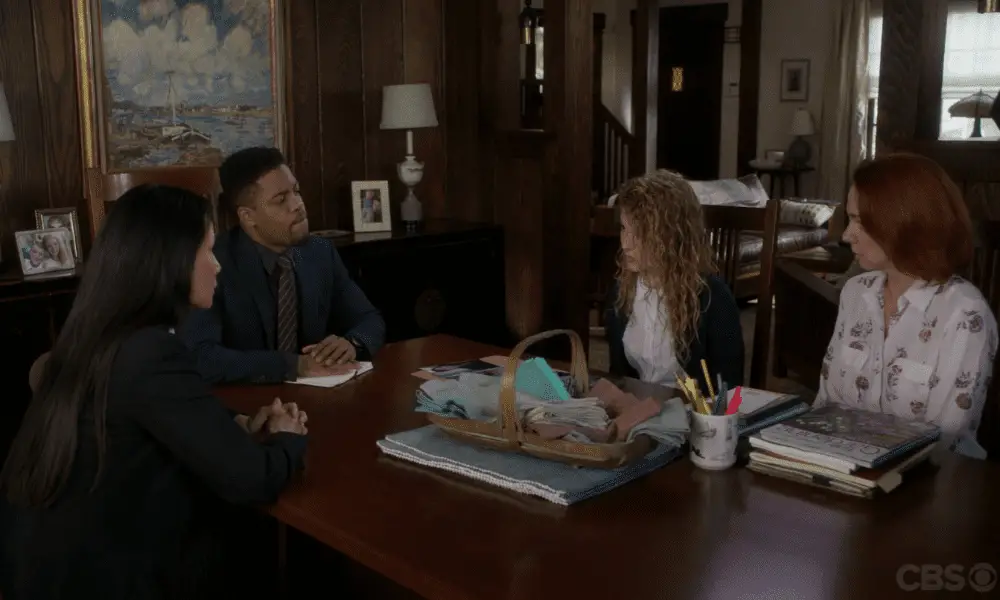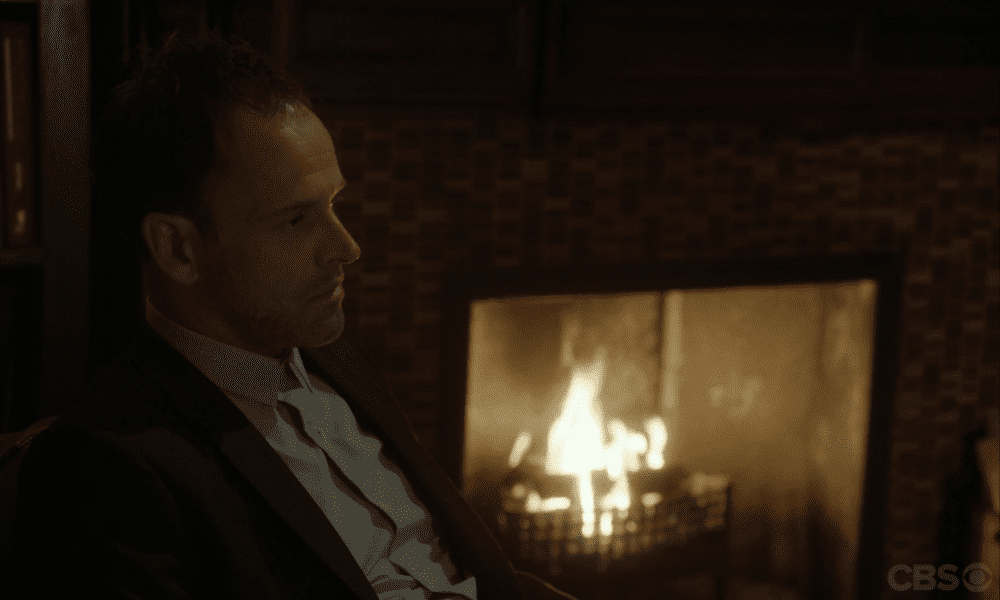Hey, you know who we haven’t seen in a while? Alfredo! But this week, Sherlock’s friend from the program who is not a serial killer is back! But we hardly have time to think fondly about how we’ve missed him before he has a favor to ask of Sherlock. Just a teeny tiny favor, you know, between friends. Could Sherlock please help him steal a hundred thousand bucks?
That’s not even the crime of the week this episode. We’ve still got a murder to contend with. Two randy college students looking for a place to hook up instead find the room overrun with rats, a bad smell, and a half-eaten corpse.
The victim was Noah Fogel, a biology professor. Based on the state of his body, he’s been dead for several days. Joan and Bell find dead rats around the stomach, suggesting he died of poison. Joan thinks it was probably thallium, a tasteless, toxic metal. Bell calls Animal Control to handle the rats since they might still provide clues on the poison.
Fogel’s TA is able to give them the rundown on the dead professor. Turns out he was more into research than teaching and wasn’t very popular with his students. He was infamous for giving bad grades, but his TA asks, wide-eyed, who would want to kill over a C? Look, the Elementary writers have given us some unlikely motives in the past, but I actually fully believe a modern college student might kill over a bad grade.
But Sherlock finds a different lead in Fogel’s office. There’s a baggie of amphetamine, stamped with the image of a witch. One of the pills is missing. Maybe that was the source of the poison. A bit of asking around on campus quickly leads them to the dealer of the witchy speed. Things that the Elementary writers believe about modern college kids: Like to hook up in science labs, don’t care about grades, are narcs. Millennials, am I right? (Or is it Gen Z now?)
The dealer admits to selling the drugs to Fogel but denies being the murderer. Fogel was a good customer, so he had no motive. He tells the detectives that Fogel had recently been working on a project that he’d said “would be the death of him.” Maybe it was.

While they chase down that lead, Sherlock turns to a different kind of crime. He and Alfredo stake out a used car dealership. Alfredo had done work for the owner providing security systems for the cars, but afterward the client refused to pay. Alfredo wants to go in and take what’s his. Sherlock is dubious. He’s not unwilling to help, but wonders why Alfredo didn’t try more legal methods first.
Alfredo reluctantly confesses he needs the money fast. His brother, Dante, is in dangerous financial trouble. Sherlock is irritated by that. He’ll help Alfredo, but not Dante, and if that’s who the money is for, then he’s out.
Fogel’s amphetamine turns out to be clean. That’s not the source of the poison. Sherlock and Joan turn their attention to Fogel’s research to try and find his big project. But Sherlock is still frustrated by his conversation with Alfredo. It turns out that Dante was the one to lead Alfredo into a life of crime and addiction, for which Sherlock can’t forgive him. That’s kind of sweet, in a Sherlockian way. But when Sherlock tried to tell Alfredo that, Alfredo said that Sherlock didn’t know how to be a good brother. Sherlock didn’t appreciate the dig about Mycroft and is angrier than ever.
The rats that devoured Fogel’s body are being held in an Animal Control facility watched by one security guard. He hears the sound of fireworks outside and goes to investigate, but he finds no one there. He returns just in time to see a van rush away. Surprise surprise, when he goes inside he finds the rats missing.
Who would want to steal a bunch of man-eating rats? A woman, apparently. Sherlock finds a piece of a woman’s blouse in the parking lot. It was burnt away by the fireworks. That means the wearer of the blouse must have been hurt. She would have had to go to a hospital. With that information, they’re able to quickly track her down.
The woman is another scientist and she’s got an alibi for the date of Fogel’s death. But she wasn’t interested in him anyway, just his rats. Those are five million dollar rats, as it turns out. A research foundation called the Galahad Institute is interested in preventing aging and eventually death. They’ve offered five million dollars to the first person to double the lifespan of rats as the first step in stopping aging in humans. Fogel was getting close. When she heard he’d died, she couldn’t resist stealing his rats to try and reverse engineer his process. She may not be the murderer, but that sounds like as good a motive as anything else. Joan and Sherlock decide to check out the Galahad Institute for more information.

The Galahad Institute was founded by the Becket family and is currently run by a father and son duo. As Joan and Sherlock wait to speak to them, Sherlock brings up his brother again. Alfredo’s comment annoyed Sherlock so much because he’s mad at Mycroft. What else is new? But Sherlock’s got a specific reason this time.
As you may remember, Mycroft has been on the run from a murderous French gang, Le Milieu. As Sherlock does not seem to remember, that’s at least partially Sherlock’s fault. To be fair, Mycroft did also lie to and manipulate Sherlock, so Sherlock’s not totally wrong in being angry at his brother. However, Le Milieu was recently eliminated in a gang war. The threats to Mycroft are gone. Even though that happened months earlier, Mycroft still hasn’t tried to contact Sherlock. Joan points out that Sherlock can contact him, but Sherlock thinks that since Mycroft wronged him (somehow or other) it’s Mycroft’s job to reach out.
I love how whenever Sherlock and Mycroft interact, Sherlock is immediately reduced to acting like an obnoxious teenager. He must have been the definition of precocious as a kid. It’s adorably annoying and an accurate depiction of sibling relationships.
The Beckets are ready to talk to our detective duo. Fogel was indeed working for the institute. But he wasn’t working alone. He had a partner, an Elijah Robinson, who was also a biologist. Robinson had recently been fired from a professorship for sleeping with a student. He also has a history of assault. Sounds promising for a murder suspect.
Unfortunately, when the police get to Robinson’s house, they find his dead body. He’s been dead even longer than Fogel, so it’s doubtful he was the murderer. Robinson wasn’t killed with thallium, but they find traces of it in his house, along with the bright blue antidote. They theorize the killer was in the process of poisoning Robinson’s milk when Robinson unexpectedly came home. They fought and Robinson died. But the killing blow was a closed wound to the head, so it’s intriguing when they find a smear of blood on the fridge.
It’s even more interesting when they run the blood and get a hit. On a fifteen year old girl, Lacey Evans.

Robinson was a big guy, so Bell doubts that a teen girl, even one who plays field hockey, is the killer. But they still make sure to interview her. It turns out she was selling her blood to Robinson. He in turn was selling the blood to old people who would inject it to feel young. Gross. I really hope that’s not a real thing…but I bet it is.
Lacey has one other interesting thing to share. Last time she went to Robinson’s home, she’d found him outside having a physical altercation with a man she didn’t recognize. Lacey recorded the whole thing.
Sherlock and Alfredo meet up again and this time Sherlock offers Alfredo a check for the full one hundred thousand. The money, Sherlock claims, comes from the dealership. He hit it up on his own. But Alfredo doesn’t believe him. It’s Sherlock’s own money and Alfredo refuses to take it. They begin to argue again. Alfredo is angry because he feels that Sherlock isn’t willing to give people second chances or to forgive them for mistakes.
On the positive side, Alfredo pissing Sherlock off seems to be giving Sherlock lots of motivation to work on the case. Some of us rage-cry or rage-eat; Sherlock rage-deduces. Lacey Evans’s video doesn’t show the face of Robinson’s adversary, but Sherlock can read the name “Hugo” on Robinson’s lips. Joan recognizes the man’s shirt as being the uniform of a fast food chain. That’s enough to ID him.
Hugo is a radical anti-scientist fundamentalist. He thinks the work of scientists like Fogel and Robinson is a perversion and is glad they’re dead. But he didn’t do it and he has an alibi for Robinson’s death. Whoever did kill them, Hugo says, would be a hero.
Sherlock makes another go of making up with Alfredo. Sherlock quotes poetry at Alfredo and Alfredo is like, “…Cool.” That’s what I love about their relationship. Alfredo grounds him. Maybe Sherlock realizes that too, because after their last argument, he actually thought about what Alfredo said to him. Sherlock went to Dante on his own and gave him the money. He wants to forgive Dante for what he did to Alfredo. But that was only a practice run. Sherlock wants to reach out to his brother too and is communicating with the banker that handles Mycroft’s money. Guess who’s got two thumbs, loves the Holmes family dynamics, and is very excited? This girl! I realize you can’t see my thumbs, but I have them.

While Sherlock is gallivanting around growing emotionally as a person, Joan has actually been working, thank you very much. Hugo’s line about the scientists’ killer being a hero has made her think. A hero to whom? It turns out that Hugo frequented a message board for anti-scientist types. Maybe their killer is someone else on that board.
The next morning, Sherlock (gently!) wakes her up. Sherlock found a suspicious person on the board going by the username of…Plup. Why Plup? What does that mean? Is that an acronym? I have a lot of questions specifically about that and none of them are answered. But anyway, Plup has been inciting people on the board to violence against the scientists working for Galahad. Even more disturbingly, he seems to know a lot of information that he shouldn’t. Sherlock thinks that when others on the board failed to act, Plup took action into his own hands. What’s more, Sherlock is fairly sure he knows who Plup is and how to prove it.
But I won’t spoil it!
They catch the killer. Sherlock makes up with Alfredo. All ought to be victorious and joyful. Yet, Joan finds Sherlock in the brownstone, looking shell shocked. Mycroft’s banker responded. He found Mycroft, faster than expected.
There’s a very good reason that Mycroft never got in touch with Sherlock. Ten months ago, he suddenly experienced in intracranial bleed, a common symptom of leukemia survivors. Mycroft is dead.

Thoughts:
- No thoughts this week because I’m too sad about Mycroft.
- Okay, one thought – I think the way they set up the storyline about brothers and forgiveness made the eventual news of Mycroft’s death that much more impactful and painful. That being said, I’m a little frustrated that Alfredo’s return was about Sherlock and Mycroft rather than Alfredo himself. Sherlock is the protagonist of course, but sometimes the show focuses too much on him and could give more attention to other characters. Alfredo is a good character. He deserves a storyline for himself.
- One other thought, actually. I wonder if Mycroft’s death is going to lead to anything with Sherlock’s dad?

